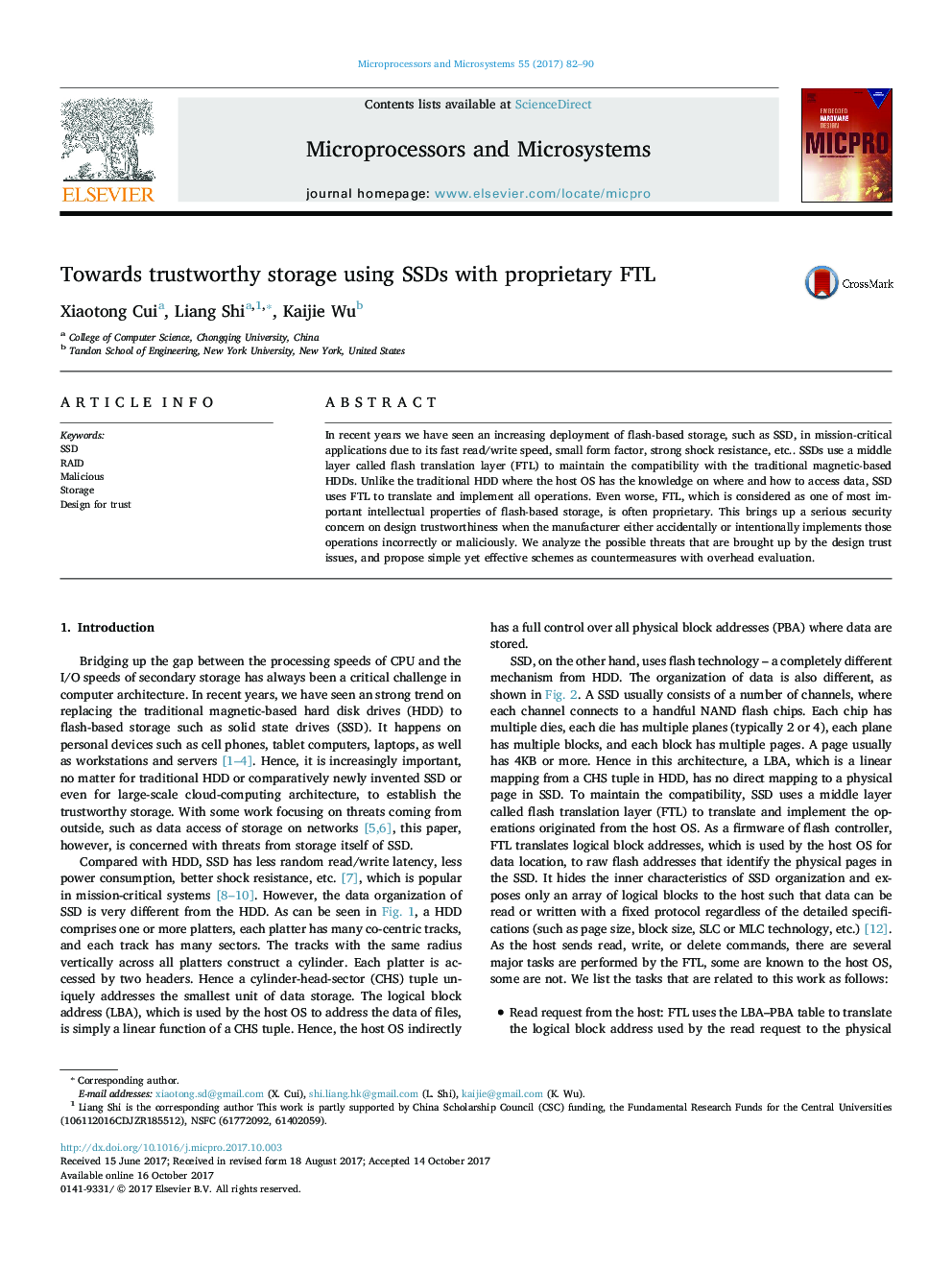| Article ID | Journal | Published Year | Pages | File Type |
|---|---|---|---|---|
| 6885984 | Microprocessors and Microsystems | 2017 | 9 Pages |
Abstract
In recent years we have seen an increasing deployment of flash-based storage, such as SSD, in mission-critical applications due to its fast read/write speed, small form factor, strong shock resistance, etc.. SSDs use a middle layer called flash translation layer (FTL) to maintain the compatibility with the traditional magnetic-based HDDs. Unlike the traditional HDD where the host OS has the knowledge on where and how to access data, SSD uses FTL to translate and implement all operations. Even worse, FTL, which is considered as one of most important intellectual properties of flash-based storage, is often proprietary. This brings up a serious security concern on design trustworthiness when the manufacturer either accidentally or intentionally implements those operations incorrectly or maliciously. We analyze the possible threats that are brought up by the design trust issues, and propose simple yet effective schemes as countermeasures with overhead evaluation.
Related Topics
Physical Sciences and Engineering
Computer Science
Computer Networks and Communications
Authors
Xiaotong Cui, Liang Shi, Kaijie Wu,
